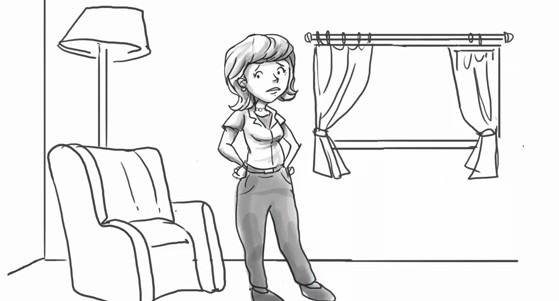Knowing constipation in women causes is the key to fully understand the prevalence of constipation-related problems among women. Studies showed that colorectal disorders affect more women than men. In fact, these disorders have been found to be more severe in women. Learning the contributing factors to constipation will help women anticipate and manage future bouts of constipation so as to prevent causing further damage.
The most evident characteristic of constipation is less frequent bowel movements. A constipated woman will also find it hard to pass stool and may likely feel some pain when defecating. Those who suffer from the condition need to make drastic dietary and lifestyle changes to treat it. Should constipation persist despite dietary and lifestyle modifications, it would be best to seek medical advice.

What happens during constipation?
It is essential to first understand what happens during bouts of constipation to get a deeper understanding of constipation in women causes. Under normal conditions, the water from the food is absorbed in the colon, leaving behind waste products called stool. Muscle contraction in the colon pushes the stool towards the rectum. When a woman is constipated, the muscles in her colon contract slowly which results in the absorption of too much water by the colon. The stool then becomes very dry and hard causing defecation to be painful.
Normal bowel movement differs in every woman; some pass stool 2 to 3 times a day, while others move their bowels 3 times a week. A woman is considered to be constipated when she has not moved bowels for 3 consecutive days or less than 3 times a week.
Factors that predispose women to constipation
Women are more predisposed to constipation than men, especially with advanced age. The following are the factors that influence women to frequent bouts of constipation.
-
Pregnancy
Pregnancy brings a lot of changes in a woman’s body which makes constipation a normal occurrence during this period. This could be due to hormonal changes which affect the normal body functions, including bowel movement. Advancing pregnancy also strains the muscles of the intestines, making it difficult to pass stool.
-
Childbirth
Childbirth strains the pelvic and abdominal muscles which could cause chronic constipation. It could also lead to a condition called rectocele – a condition characterized by a protruding tissue in the vagina which traps the stool in the rectum.
-
Certain medications
Some medications are notorious for causing constipation in women as well as men. These drugs are often used in treating and managing health problems like anti-hypertensive drugs, pain relievers, anti-depressants, calcium channel blockers, anti-convulsants, antacids, tranquilizers and iron supplements. Prolonged use of laxatives is also known to result in constipation too.
-
Hygienic and social reasons
The fact that women are fussier about anal hygiene moves them to hold back their stools when using public comfort rooms. Oftentimes, they wait until they get home to empty their bowels. Some prefer to empty their bowels at home due to social reasons and avoid being embarrassed by the noises they make when using the restroom.
Other common constipation in women causes include inadequate intake of fluids and fiber as well as a sedentary lifestyle.


